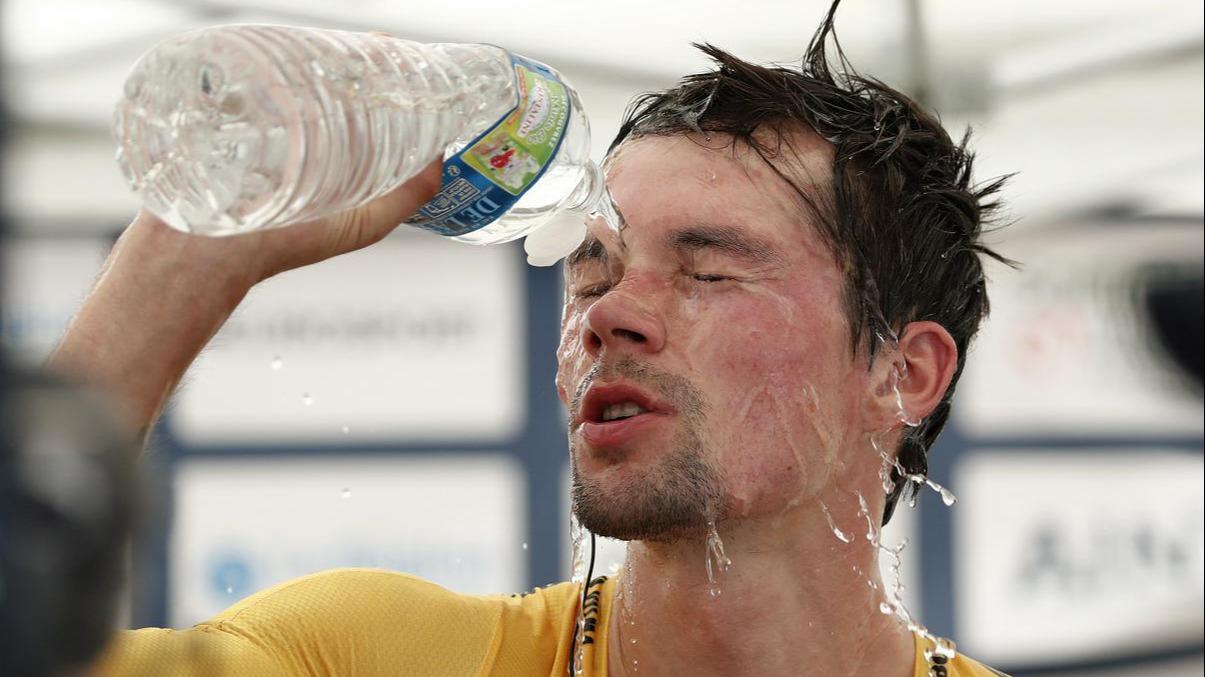
We hosted the best cyclist on the UCI rankings on the Numbers podcast a week before the start of the Tour de France. Primož Roglič talked about his career and about his expectations before the Tour and the Olympic Games. You are invited to listen to the full conversation (which was recorded earlier this month) and also the summary below.
We love numbers in the Number podcast. You favorite one is probably number 1?
Certainly, when I finish the race. At school, however, that number wasn’t the most enjoyable (laughs).
Top athletes like well-defined preparations and racing plans. How successful have the preparations been since the Ardennes classics?
We all like to follow plans. We all realized, however, that it was difficult to plan anything, as we were plunged into an epidemic. For us, everything is going according to plan, this is especially true for the last days. The preparations are very successful, everything is going according to plan. I am healthy, which is great.
May was much cooler than usual(ly) in previous years. This also affected the Giro and you also posted a picture from Tignes where there was a lot of snow. Did that hinder your training?
There is really a lot of snow, especially in the Alps. I started my preparations in Sierra Nevada. The weather was much more pleasant there, it was very hot, sometimes even 35 degrees Celsius in the valley, but we did all the training without any problems. It really looks more wintery in Tignes, but it’s not really that bad. Summer is coming and the temperatures will creep slowly creep up in the mountains, which means that sooner or later all this snow will disappear.
Did you have to improvise?
Not really. We adjusted some details here and there, we may have changed some training sessions. There was no need to improvise anything crucial. There is usually more improvisation in the races themselves.
Cycling is basically an individual sport, but at the same time the team is of great importance. Three-week races are like marathons, you are on the bike for almost five hours every day, something always happens, so you have to be ready to improvise.
Before the races, you can plan how to perform, but then it can be completely different when everything unfolds. We compete in nature. We are exposed to the weather and other natural influences. It really is an unpredictable sport. At the same time, there are 200 other cyclists who have their own plans. It is so interesting. You try to get through everything with as few unnecessary problems as possible. You need to get through all the situations as best as you can. Ultimately, we all want to show how well prepared we are at the end of a race or stage.
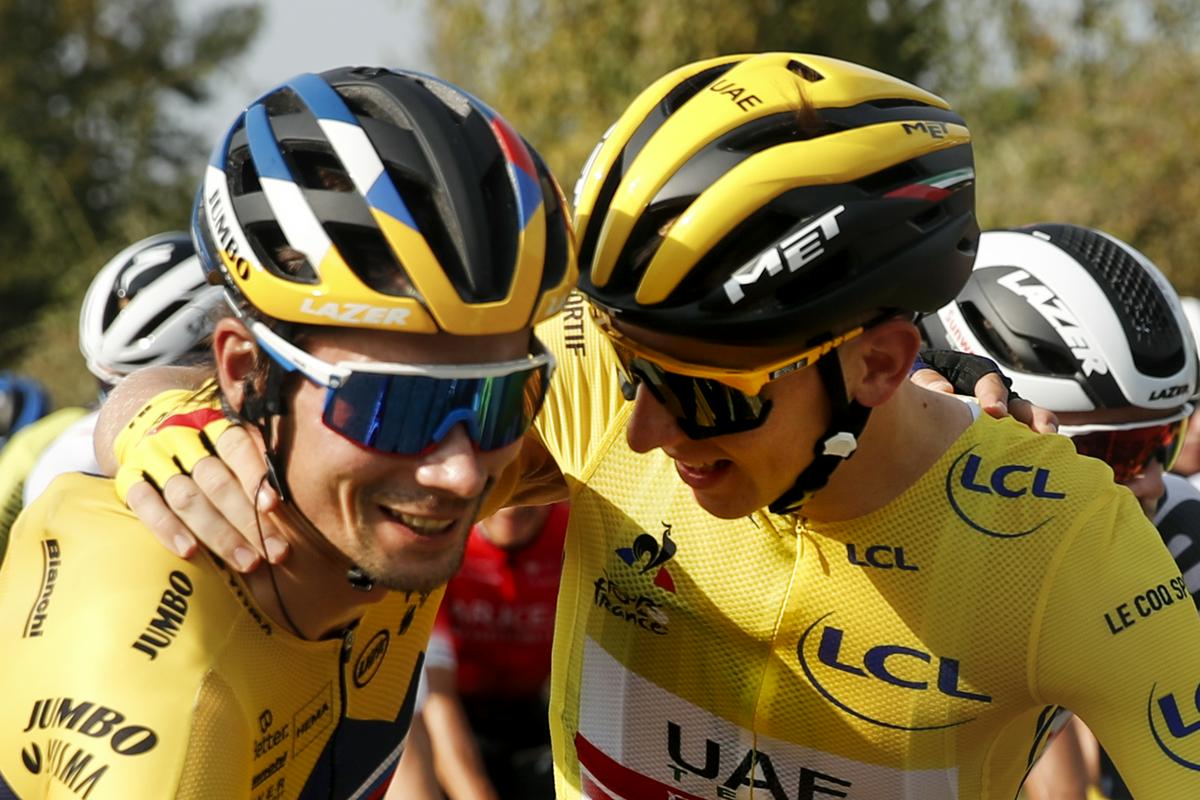
When you said 200 cyclists, it reminded me of the Tour of the Basque Country. I had the feeling that you were a little nervous when a large part of the media emphasized your rivalry with Tadej Pogačar, and you kept answering that you are not the only cyclists in this race.
I found it funny that they were only dealing with me and Tadej. As you mentioned, there are a huge number of other cyclists in the peloton. The race itself is bigger than us. From the Slovenian point of view the question 'which of us will win the race' is a very sweet concern. I am always surprised at these questions because they keep repeating themselves (laughs). I can laugh at that, but I keep emphasizing all these things over and over again – there are a lot of riders competing for the top spots and the races are unpredictable.
You felt this unpredictability in the first half of this season. You raced very well at Paris-Nice, but a fall took away your victory, then you experienced a technical failure before the last slope on the Amstel Gold Race, and there was also that torn rubber band in the Basque Country.
Interesting, isn't it? This is what makes the sport attractive to all fans and spectators as well. Things happen. It's what makes sport special. As long as they happen in your favor, all is well, but such things happen against you as well. It’s also a kind of special, how to get through it all, learning, and looking forward to the next races.
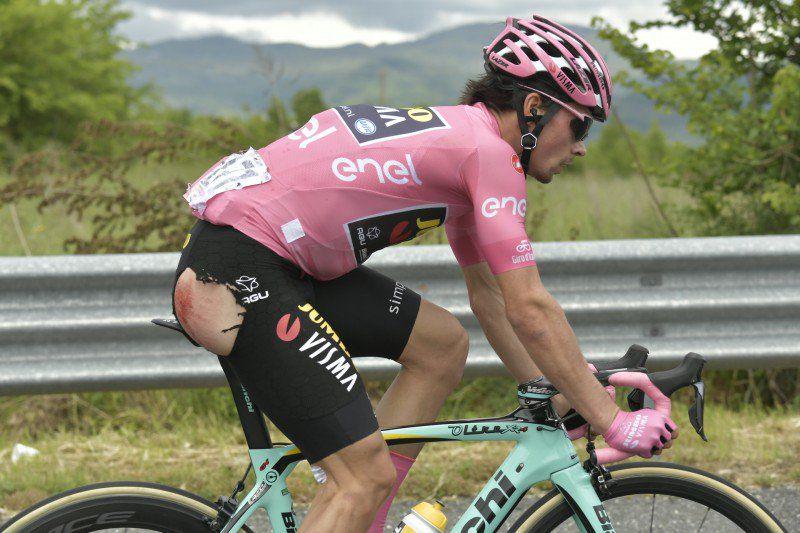
Martin Hvastija repeatedly pointed out, in the SOS podcast, that you missed cycling primary school due to your ski jumping background and immediately made it to cycling college. This is supposed to be the reason that you may have had more falls in your cycling career.
For sure (laughs). He said it as it is. Everyone knows I didn’t have a bike at all until I was 22 years old. It turned out that I quickly broke through. Now I can ride with the best. But definitely some unpleasant things happen to me here and there. Everyone falls. It is an integral part of our sport. The fewer falls I suffer, the better. Above all, I had to learn very quickly. I still follow this path to try to learn as much as possible from any mistakes or unpleasant things (experiemces). It makes it easier to keep going.
The SOS podcast cohost Toni Gruden also has a question for you. He is interested how much you plan on weighing, when you will start the Tour the France, or are there things kept secret?
With as few kilograms as possible (laughs). It’s never really low. I always say I have between 60 and 70 kilograms. Let’s just say my weight is 65 kg.
65 is in principle also the number, that analysts use to calculate W / kg on difficult slopes. Does this relationship tell you anything or is it more interesting for the fans?
Depending on each individual. I'm not really that interested, I'm more interested in all the competitors around me. If they’re faster, I’m obviously not going fast enough and in that case W / kg or anything else can't help me (laughs).
How much do you follow media reports about yourself?
Very little. After all, I find it hard to get anything from them. Maybe I’m just distancing myself from all of these things, especially during the three-week races, and I don’t really keep track of what’s going on around me. I just try to keep track of what’s going on in the race.
I'm not surprised. Years ago, I did research on this very topic and found an inverse correlation - the most top athletes in the world (like you, of course) do not follow media records. Probably one of the bigger motivations then is the family?
It's true. Lora and Lev are my life. They raise my motivation, no doubt. They are my first and biggest fans.
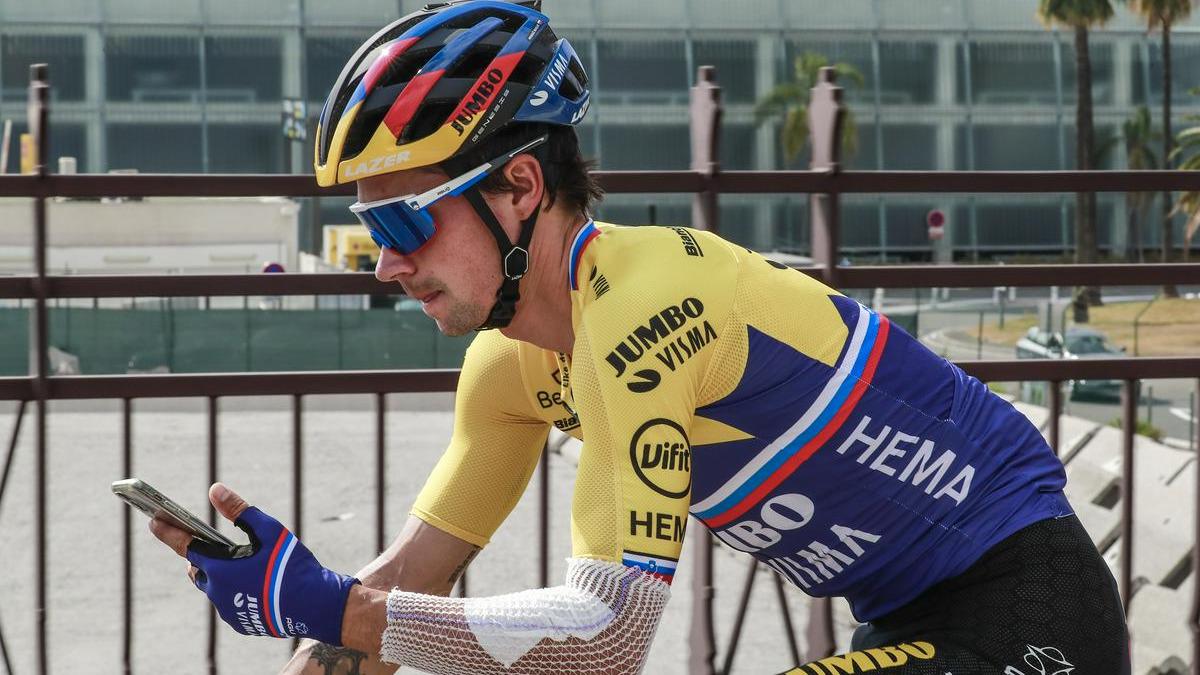
Your first sport was ski jumping. Many say that that fall in Planica was to blame for you quitting jumping, but it seems to me that it was more the realization that you can’t tackle the top in that sport and that's why you went elsewhere.
I see you put the pieces of my story well together (laughs). It's true. I found out that I was no longer a youngster in ski jumping. Okay, I got some good results, I wasn’t exactly the worst ski jumper. But I was never a world or Olympic champion. You have to look at yourself int the mirror and make a decision. I went on a whole new path.
Actually, you were a world champion (in the team youth event). When you started a new path, you went to Radivoje Milić for testing. Do you still remember that?
Of course! These things were as important to me as a (the) race. I came from a completely different sport, everything in cycling was new for me. I remember these tests, especially the satisfaction and enthusiasm and then everything that followed at Adria.

He told you that you are capable of racing the best in the world. Did you imagine what that potential could bring? That you could also win a Grand Tour?
I did. Anyone who starts with a sport dreams that one day they will be the best and achieve greatness in that sport. That is also true for my ski jumping career. I certainly wanted to be the best. Obviously, it wasn’t the sport that was most suitable for me. In the end, it turned out that that sport was cycling. It suits me really well. When these things as (are) planned, it's great. Then you just need to keep on upgrading, upgrading and upgrading. Now I have achieved things that are truly amazing. It was difficult to imagine all this happening, but I'm certainly enjoying it.
No one is a machine, no one can win all the time. Everyone (not just every athlete) can be crushed by defeats. However, they seem very motivational for you.
Yes! Competition is good. That is true for all things in life. It raises your level. Let me highlight Tadej. He is really remarkable. I am very, very happy to be cycling in this age with him. He also makes me even better than I would otherwise be.
Last year after the Tour, a change happened in you, as if you really decided not to leave gifts for anyone anymore. On the Vuelta, you came up with four stage wins in four really different ways. I remember the outcome of the 16th stage, when medium-sized group sprinted to the finish line. Costa from Portugal changed direction a bit and you finished second. You looked really angry. Did you make a deliberate decision then, to attack every victory possible?
Everyone learns new things throughout their career. At the Vuelta, I really wanted to be the best every day. I really wanted to do everything and let the result show that in the end. I was definitely a little furious in the end of the stage you mentioned. If I started the final sprint a little faster, I could've won it as well. All these experiences are helpful. Sprinting can be a bit risky. Sometimes you win, sometimes you don't.
Well, you've racked up quite a few wins. Before the Vuelta, you won Liege-Bastogne-Liege, making you the first Slovene to win a Monument. In the evening, with a beer in hand, you told your teammates from Jumba Visma: 'I managed to win something.' You repeated this sentence to the media earlier, which was of course a bit funny. It was already your 42nd victory. Do you feel the need to constantly prove yourself all the time?
What do I know (laughs). Above all, I remember being happy. As I said before, sometimes you win, sometimes you lose. And things happen. The race hasn't ended until you cross the finish line, and even then, you sometimes need the photo finish to decide as it was in Liege last year. That was a great win for me. I was really happy.
The Tour de France is coming up. It is a bit more 'classical' this year, with more sprint stages and fewer mountains. Does this route suit you more or less than last year?
It’s hard to say what suits me more or less. You have to be prepared and have the right legs. When you’re good, at your best, it doesn’t matter what the slope is like - whether it’s a little more or less steep, whether it’s shorter or longer. If you are good, then there is no problem. But if you are not, then you have difficulty going up every slope. The main thing for me is that I am optimally prepared to start this year's Tour.
Last year you were on the Tour with a proven train of mountain riders, this year, according to the sports director, you want to compete a little more unpredictably. What kind of Jumbo Visma will we see on the Tour?
I hope it's going to be the best possible version of both (laughs). We will have to wait for the start of the Tour to see how good the version will be.
Our reader Irena noticed some of your posts with your bike for time trials. She feels like you get along well with it.
She's right. This year, there are two rather long time trials on the Tour, both about 30 kilometers long. Last year I was a bit limited before the start. I fell at the Dauphiné and I couldn’t train the time trials until the Tour. This year, everything is going according to plan. I hope all the Tour time trials will be like the rest I did this year.
You rode both time trials a few hours after the victory in the Basque Country. How important is it to know the roads at a time trial?
Time trials are a rather specific discipline. It is certainly welcome to know the route, to know how challenging it is. This year's time trials are not technically demanding, but as the famous saying goes - the one with the best legs will have by far the least problems.
How interested are you in the Olympic time trial? Slovenia has only one quota in this discipline, and there are at least three cyclists, who can compete.
I'm definitely interested. It is right to send the best. In the end, we’ll see who gets to ride it. This will also be influenced by the outcome of the Tour de France.
Thanks to you, cycling has flourished in Slovenia in recent years. How have you experienced this, from your point of view, from the first row?
I am honoured to have contributed a little to this with my results. It’s healthy to go by bike to the store or go for a short ride. It’s always a joy to see or hear the younger generation jump on the bike. If I am the reason for this, that is just the most beautiful thing to hear. I want to communicate these principles. They are useful for the younger generation, especially that they should never give up and that they must fight for their dreams and achievements! One must learn from mistakes and look to the future.
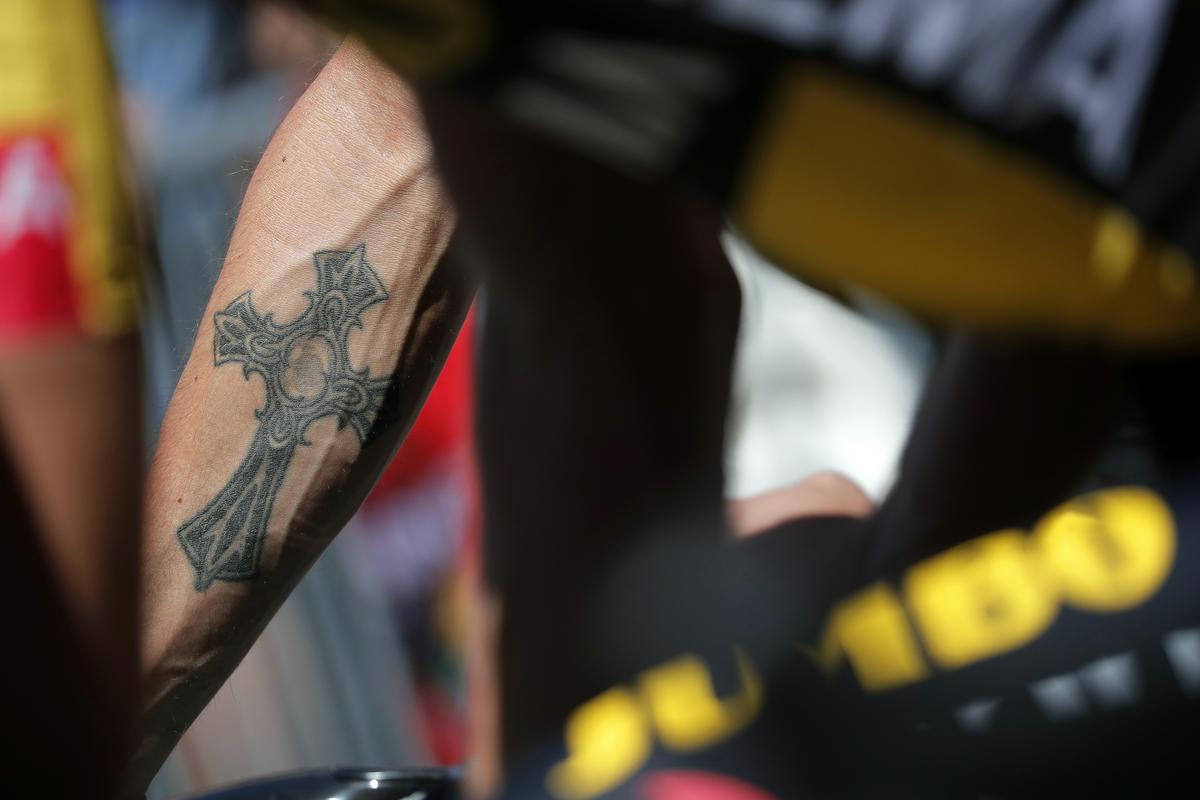
The main theme of this season are extremes. What do extremes mean or represent to you?
My life is probably extreme (laughs). Whatever I look at, I can find a lot of extremes in it. We push the boundaries of what is possible, how fast we can go uphill. In my private life, the extreme is that I try to be an ordinary Primož, an ordinary man.
You are invited to listen to the entire conversation (click on the picture below), in which Primož Roglič also talks about the following topics:
- Did he really send Lora to the climbs on which he planned the attack?
- What influences him to have the 'right legs' at a given moment?
- His disappointment at this year's Liege-Bastogne-Liege race.
- Does he reads cycling books?
- Is there a Lance Armstrong-type cyclist in today's caravan?
- What was going on at Giro 2019 with him and Vincenzo Nibali?
- What does it mean to him that he broke Sagan's record for the number of weeks in 1st place in the UCI rankings?























































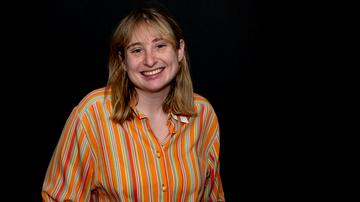
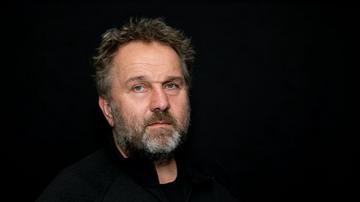
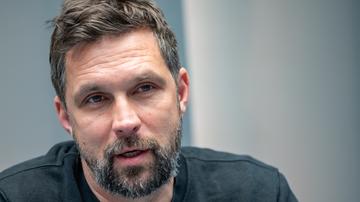
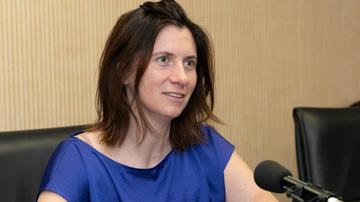
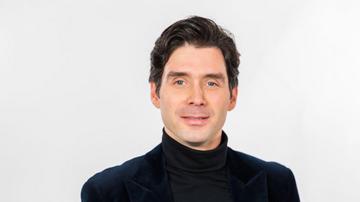










Komentarji so trenutno privzeto izklopljeni. V nastavitvah si jih lahko omogočite. Za prikaz možnosti nastavitev kliknite na ikono vašega profila v zgornjem desnem kotu zaslona.
Prikaži komentarje